On September 29, 2017, the day after the 2017 Allard Prize Ceremony, Allard Prize honourees gathered for a question and answer session with Peter A. Allard School of Law students and interested members of the community.
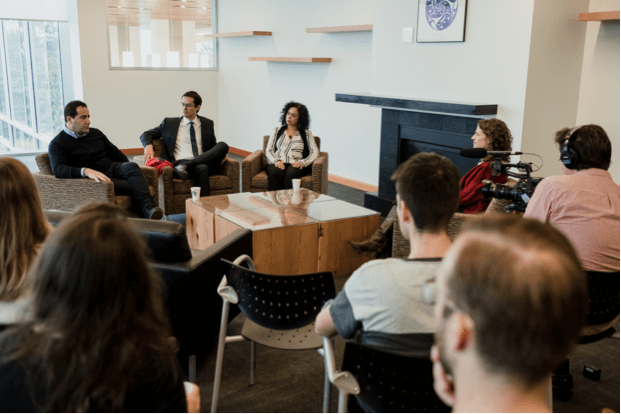
Left to right: Allard Prize honourees Kenan Aliyev, Deltan Dallagnol, and Iman Mandour and moderator Nicole Barrett
Nicole Barrett, Executive Director of Allard Prize Initiatives, began the session by asking the honourees about their view on the international aspects of anti-corruption and human rights work.
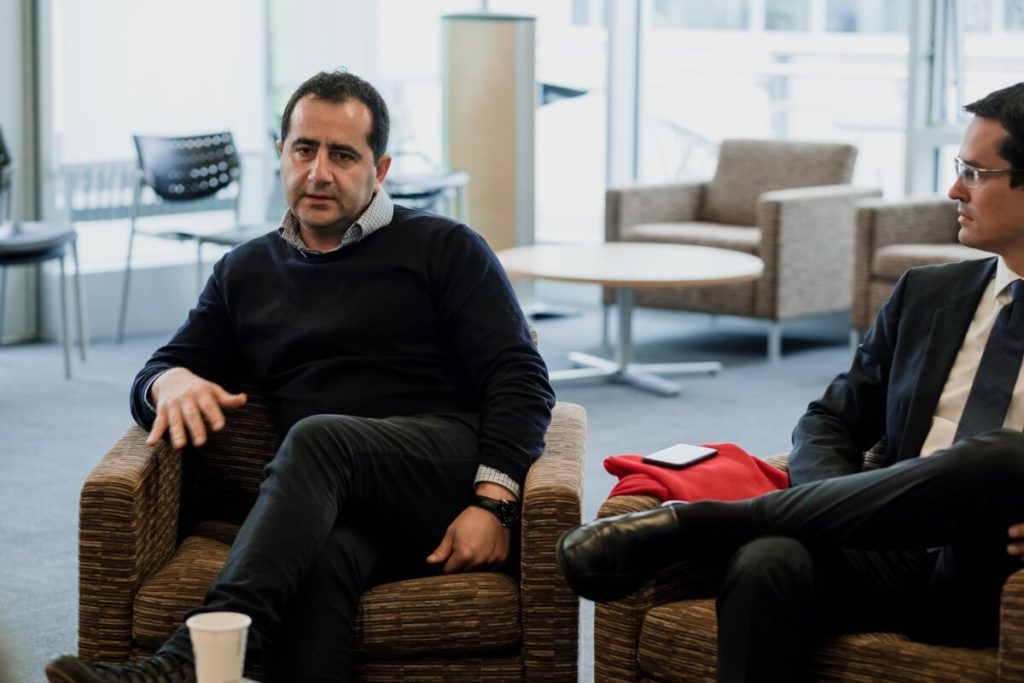
Kenan Aliyev discussing Khadija Ismayilova’s work
Kenan Aliyev, representative for Allard Prize recipient Khadija Ismayilova who was unable to attend due to her travel ban, discussed how international support for Khadija has been essential to her work. When she was imprisoned, the international community rallied around her and continued her work in her stead. This put significant pressure on the Azerbaijani government, which Kenan credited as the reason for Khadija’s early release from prison. He also noted that corruption itself has international aspects, as demonstrated in Khadija’s recent work revealing the Azerbaijani Laundromat, in which Azeri government officials bribed European Parliament members in exchange for favourable treatment by the Council of Europe.
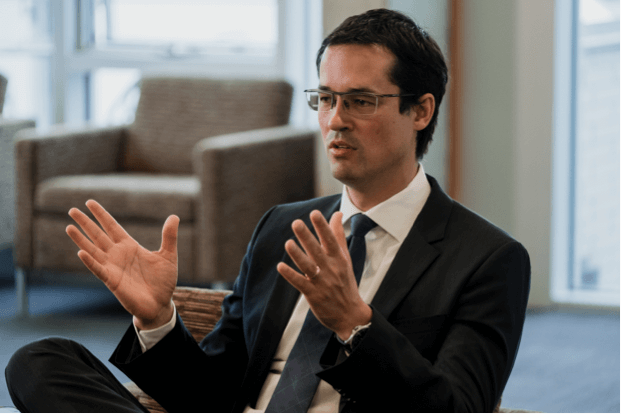
Deltan Dallagnol responds to questions about the Car Wash Task Force
The Car Wash Task Force (Força Tarefa da Lava Jato), represented by lead prosecutor Deltan Dallagnol, stated that international cooperation is essential to the success of anti-corruption prosecutions in Brazil. He noted that the case included visits to over 40 countries where shell companies and bank accounts were used to hide laundered money. Deltan also discussed the ease in which money is laundered between various countries given current technology and increased globalization. Finally, he underscored the value of international law research and soft law and suggested that the work of students and scholars is essential in influencing domestic attitudes and laws to more effectively combat corruption.
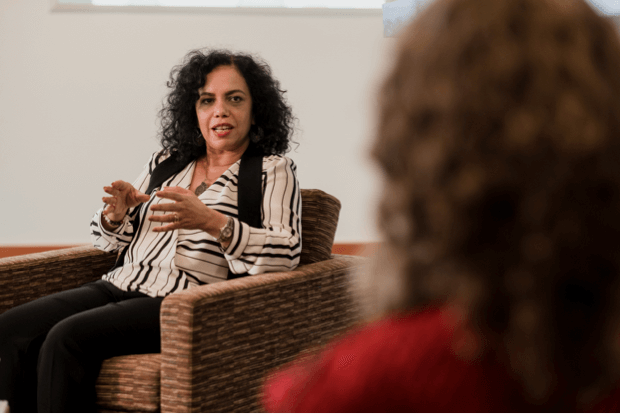
Iman Mandour answers questions about the state of women’s rights in Egypt
Azza Soliman’s representative, Iman Mandour, talked about what she called the “corruption of culture” in Egypt and other Arabic states, which has prevented individuals from accessing rights both domestically and internationally by perpetuating a claim that there are culture-specific reasons to reserve or limit rights. Iman discussed how this new culture arose following the Cold War as a result of international instability that contributed to the rise of Mujahideen. Now, women have fewer rights and freedoms than decades before. For example, Iman discussed how dressing in a particular way has become an act of defiance for her, but anguished that one’s clothes should not be a political statement.
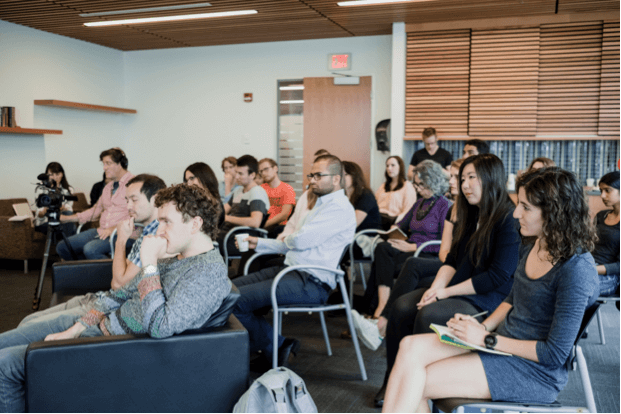
Students from the Peter A. Allard School of Law and other audience members at the session
Kenan was asked about the fact that the U.S. government funds Radio Free Europe and whether that money has the potential to influence their reporting work. Kenan responded that it definitively does not, though that is a question they are often asked back in Azerbaijan. The U.S. government exerts no influence over the content of their productions. He cited, as an example of the independence of Radio Free Europe, an incident in which he refused to alter his broadcast to appease government officials.
Deltan responded to accusations that the Car Wash Task Force was operating in violation of the Constitution of Brazil and that it had a political agenda. He stated that accused persons always have stages of appeal if they disagree with a decision or the evidence and noted that the appeals courts have not found any unconstitutionality in the Car Wash Task Force’s operations. He answered the political critiques by suggesting that the concentration of power in Brazil has been held by a single party for many years, so naturally that party is being prosecuted first. Deltan cautioned that there is a large amount of misinformation in Brazilian media and that large interests, often funded by the corrupt politicians being prosecuted, are working to undermine the work and reputation of the Car Wash Task Force.
Kenan and Iman responded to a student’s question about why they decided to stay in their home country and face the risk of persecution, rather than to move to places with more respect for freedom of the press and human rights. Both Kenan and Iman suggested that to remain in the country in the face of oppression, as Khadija and Azza have both done, is itself an act of defiance. Iman discussed her struggles to fight for the freedoms that women from her mother and grandmother’s generations experienced. Kenan talked about how Khadija returned to Azerbaijan from her travels abroad despite knowing that she would be arrested. According to him, Khadija said that not returning would be a message to everyone that she was afraid to return to her own country and would be exactly what the government wanted.
The representatives also addressed the role of international institutions in combating corruption and promoting human rights in their countries. Iman expressed frustration that diplomacy has been used to block certain groups from accessing international human rights processes. For example, she noted that the Universal Period Review has been abused to prevent and stifle serious criticism. Kenan noted that while international institutions may not have the power to force serious sweeping changes, it is still better for human rights that states participate in them than not.


